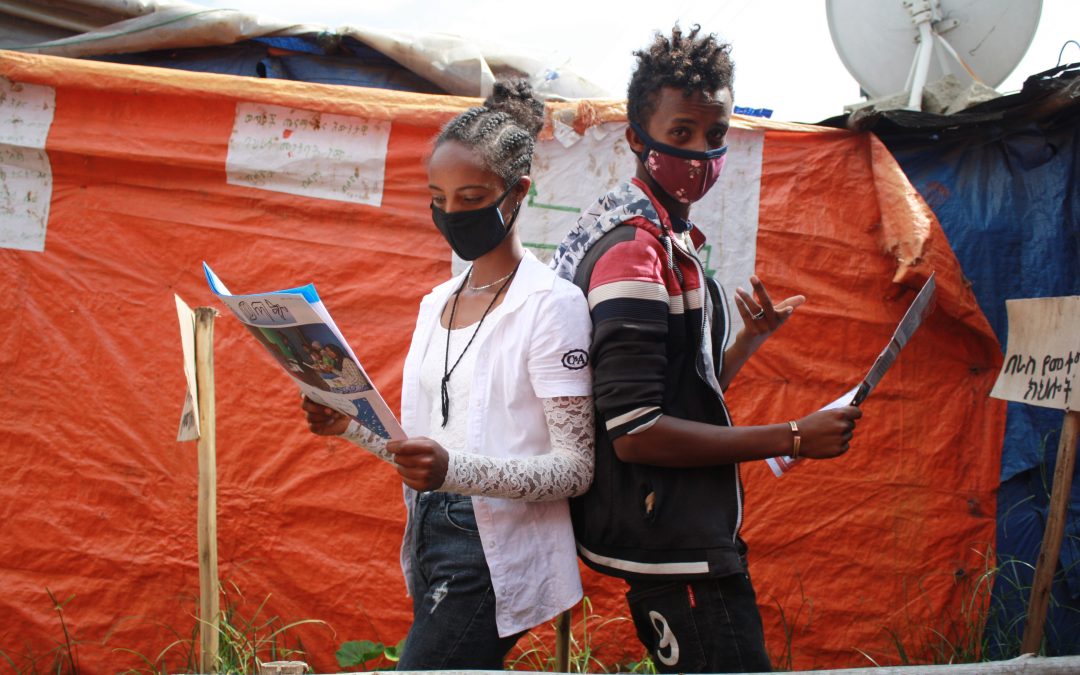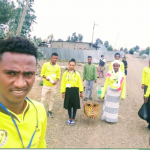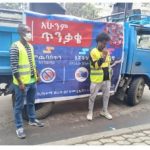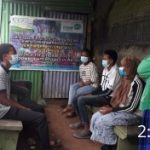Despite the ongoing hardships caused by current situation, DSW Ethiopia continued its commitment of providing young people with sexual and reproductive health (SRH) information and services. This was achieved by integrating COVID-19 prevention measures and tailored messages into the various activities undertaken, and in finding creative means for disseminating self-care SRH messages.
One of the many issues faced by young people during this time was in gaining access to contraceptives. Like in many other east African countries, the lockdowns prevented people from travelling to health clinics. In Ethiopia, DSW worked hard to continue distribution of contraceptives, such as condoms, through our youth clubs and public health facilities supported by DSW. DSW also helped to strengthen and equip health posts and health centers for youth-friendly service provision via the provision of personal protective equipment. These services were linked with referral activities to help prevent unintended pregnancies among vulnerable young women.
DSW’s training center was also adapted to the COVID-19 situation. Training for youth continues, however with mask wearing and social distancing rules strictly observed. Cleaning and sanitizing hands still remains a norm at all times. Internet and other audio-visual activities were enhanced at the training center to disseminate information. Using various social media platforms, including new and existing Telegram accounts, WhatsApp and Facebook groups – DSW Ethiopia is ensuring that COVID-19 integrated messages are disseminated regularly to the community.
Meeting the needs of a young work force
In Ethiopia, industrial parks are a major source of employment for youth. In Hawassa and Bole-Lemi industrial parks, which employ a total of about 45,000 young people, DSW ramped up its activities to fill any gaps in SRH information and service provision (including the availability of contraceptive commodities). DSW’s campaigns around this time also featured information about COVID-19 protective measures, which helped to enhance awareness among youth working in the parks. In addition, information about sexual and gender-based violence (SGBV) issues were also integrated. The dissemination of SHR messages were tailored in a youth-friendly manner by using various social media platforms. Telegram was one of the most frequent social media platforms used for information dissemination.
Partial lockdown amid COVID-19 slows down life. But, DSW was out there to reach out with support for the most vulnerable.
Working with DSW made a difference amid COVID-19
At the beginning of the pandemic, it felt like everything around me posed a potential threat. I felt that the virus was all around me, including on the chair I sat on, in the bed I slept in and in the shoes I wear. This feeling has slowly changed. I realized that being careful is more important during COVID-19 than being fearful. The dilemma for many is that staying at home all day long increases the risk of being sexually assaulted by a relative, and going out increases the risk of being infected with COVID-19. During the first few weeks of the pandemic, it wasn’t that easy to access to SRH services and supplies. Even if the need was there, COVID-19 was everyone’s primary health concern, so people were keeping away from health facilities as much as possible. Thanks to DSW’s quick move to intervene, I started to receive relevant information about COVID-19. I learned how COVID-19 impacts SRH services.
Due to DSW’s initiative to step up and equip us with necessary information during the COVID-19 pandemic, we became determined to fight back against the COVID-19 and keep ourselves and our community safe. During these times, people aren’t as equipped to prevent unintended pregnancies as they are in different circumstances. When the partial lockdown went effective, accessing contraceptives, even the most common commodities such as condoms, was much more difficult. It was a tough call as everyone had to embrace the new reality, face the pandemic and think about how to contain or prevent community spread. With DSW’s supplies of the personal protective equipment in hand, my peers and I used our youth club as a platform to disseminate SRH information and link those in need to referral services. With all the necessary care being taken, which is a huge change in behavior; people are beginning to come to the health centers to access SRH services and supplies again.
Encoy Kebede, 22, is one of the leaders of Bilechta Youth Club based in Aleltu, Oromia region, Ethiopia.
Would you like more information? Check out the following to stay updated:
- See how we are responding to COVID-19: https://old-en.dsw.org/covid-19/
- How do we work with young people? Hear what they have to say: https://old-en.dsw.org/category/youth-empowerment/
- Check out our ongoing projects: https://old-en.dsw.org/projects/





